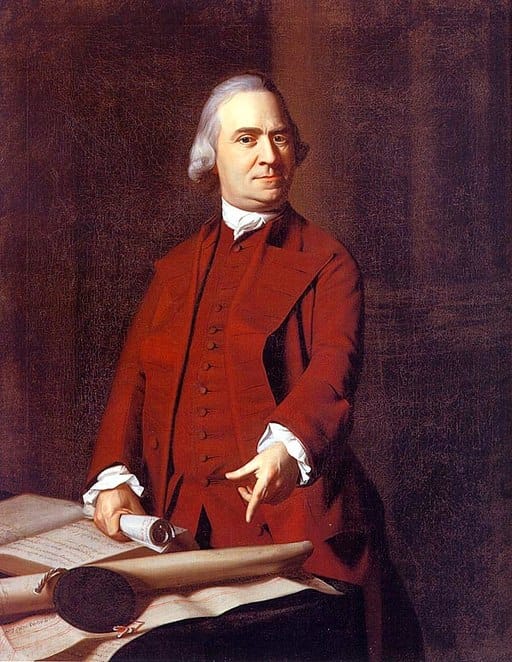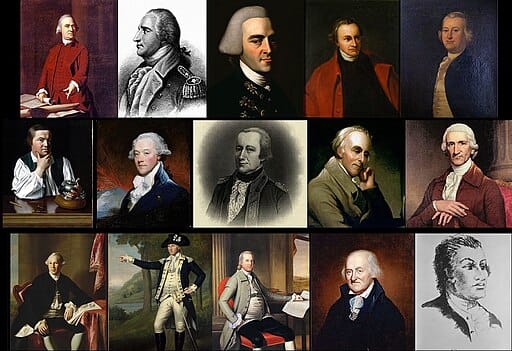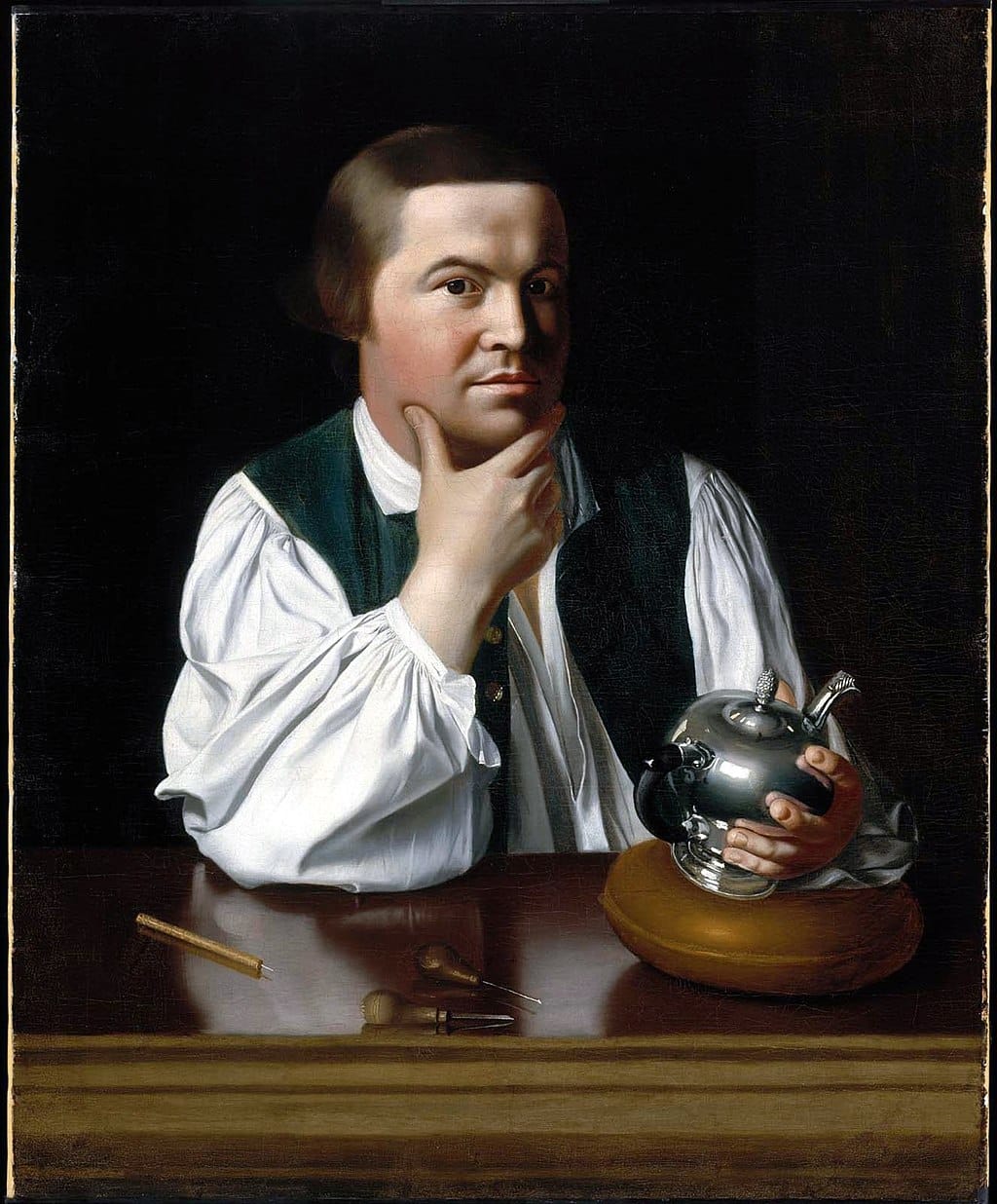Who Was Samuel Adams?
Samuel Adams was born on September 27, 1722. Samuel was not just a politician but a firestarter for freedom. He was known as the “Father of the American Revolution.” Samuel had played a crucial role in uniting the colonies against British oppression but what drove the colonists to dump British tea into Boston Harbor in 1773?
The answer lies in Samuel’s powerful belief in liberty. Samuel saw taxation without representation as tyranny and the Boston Tea Party, under his influence became a bold statement: the colonies would no longer tolerate British control over their economy or rights.
Samuel rallied the patriots not only for chaos but also for justice. The message? “Freedom is worth any risk.”
“The liberties of our country, the freedom of our civil Constitution, are worth defending at all hazards.”–Samuel Adams
Samuel’s legacy lives on, not just in history books, but in every act of defiance against injustice.

Image via Wikimedia Commons. This work is in the public domain in its country of origin and the United States. Original file
Early Life and Education
Samuel Adams, born on September 27, 1722 in Boston. Samuel was raised in a Puritan household rooted in civic duty and religious devotion and educated at Boston Latin School and Harvard College. He studied politics and philosophy, laying the groundwork for his revolutionary ideals.
A fierce critic of British rule, Adams believed the Tea Act violated colonial rights, and his leadership helped spark the Boston Tea Party, where colonists dumped British tea into Boston Harbor in 1773. Why? To protest “taxation without representation” and to send a clear message to the British, and the message was–”the colonies would not be silent.”
More than tea was lost that night but it was a bold act of defiance led by men like Adams who envisioned a free America and his relentless voice for liberty helped ignite the flame of revolution.
- Date of Birth: September 16 (O.S.) / September 27 (N.S.), 1722.
- Education:
- Boston Latin School – foundational classical education.
- Harvard College (1736–1743)–earned both bachelor’s and master’s degrees, where he studied politics and philosophy.
- Boston Latin School – foundational classical education.
Political Rise and Revolutionary Influence
Samuel Adams was not just a politician but he was the spark that lit the flame of revolution. A fierce believer in the power of everyday citizens, Samuel rose to lead the Massachusetts radicals in resisting British rule.
Samuel organized opposition to the Stamp Act, united colonies through the Committees of Correspondence and led the Sons of Liberty. A movement that took bold action in 1773. Their most famous protest was dumping British tea into Boston Harbor.
But why risk everything?
To Adams and the colonists it wasn’t just about tea but it was about freedom. By destroying the tea they defied taxation without representation and challenged Britain’s grip on the colonies.
From fiery speeches to strategic organizing, Samuel helped turn frustration into revolution and eventually signed the Declaration of Independence.
Key Roles and Contributions:
- Organized resistance against the Stamp Act (1765).
- Helped establish the Committees of Correspondence, which united colonial resistance.
- Leader of the Sons of Liberty, a grassroots movement opposing British authority.
- Instrumental figure in the Boston Tea Party (1773).
- Delegates to the First and Second Continental Congresses.
- Signer of the Declaration of Independence (1776).
Governor and Later Life
Samuel Adams was not just a passionate patriot but he was the spark that lit the American Revolution. His bold defiance of British tyranny came to a head during the Boston Tea Party where colonists dumped tea into the harbor to protest unfair taxation without representation. Adams understood this act was not just about tea but it was about liberty.
He rallied fellow colonists to take a stand, hoping to inspire a future free from royal control. Even after the Revolution Adams continued to serve becoming Governor of Massachusetts (1794–1797) following his cousin John Hancock.
Though he faded from national view his dedication to republican values never wavered. Samuel Adams died on October 2, 1803 at 81 and rests at Boston’s Granary Burying Ground and his legacy sealed as a true architect of American independence.
- Date of Death: October 2, 1803.
- Burial Site: Granary Burying Ground, Boston.
Family and Personal Life
Samuel Adams a fierce patriot rooted in Boston’s streets was not just a politician but he was the voice of the people. After marrying Elizabeth Checkley and later Elizabeth Wells Adams raised six children including Samuel Jr., all while shaping a revolution. In 1773 he helped orchestrate the Boston Tea Party–A bold act of defiance against British tyranny. Colonists dumped tea into the harbor to protest unfair taxation and assert their right to self-government and Adams believed freedom was worth the risk. His leadership turned frustration into action and history.
Legacy of Samuel Adams
When Samuel Adams helped orchestrate the Boston Tea Party in 1773 it was not just about tea but it was about freedom. Fed up with “taxation without representation,” Adams and fellow colonists dumped 342 chests of British tea into Boston Harbor to protest the Tea Act.
But the question is: why take such a bold step?
Adams believed that liberty was non-negotiable. Long before independence was mainstream he pushed for it, stirring colonial resistance through powerful speeches and grassroots organizing. What was his goal? To awaken a sense of self-rule and reject British control.
Thomas Jefferson once called him the “Patriarch of Liberty,” and for good reason. Samuel pioneered the Committees of Correspondence and laid the groundwork for the revolution and inspired thousands to act. Boston newspapers later hailed him as “The Father of the American Revolution.”
What did Adams and his allies hope to achieve? A future where governance was earned not inherited. A nation ruled by its people not a distant king. Samuel legacy lives on as a visionary who proved that conviction could ignite a movement.
Why He Still Matters:
- Pioneered grassroots political organizing.
- Advocated for full independence before it was popular.
- Helped define the values of republican self-governance.
- Embodied the power of conviction over compromise.


